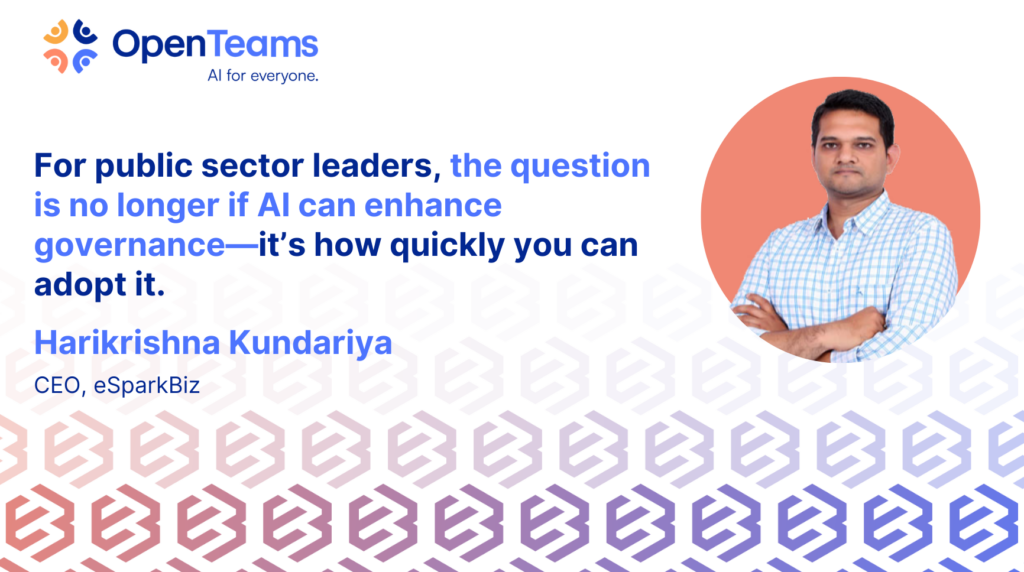
How AI Enhances Open Source Software Compliance for Government
Daily standups may seem harmless, but they’re disrupting the deep focus developers need to do their best work.
What does it really take to run a successful data consulting business solo? “Seattle Data Guy” reveals the unfiltered truth—from first clients to burnout and beyond.
Today, OpenTeams brought together members of its Open Source Architect (OSA) Community for an exclusive fireside chat with Benjamin Rogojan, widely known as the “Seattle Data Guy”. The live virtual event offered a candid conversation on the realities of running a one-person data consulting business—covering everything from burnout and brand building to pricing, client acquisition, and legal logistics.
Rogojan, whose content reaches over 300,000 followers across platforms like Substack, Medium, and LinkedIn, shared personal insights into the journey from side gigs to full-time consulting. He also gave practical advice for new and aspiring solopreneurs working in the data space.
It happened accidentally. A colleague from a previous job asked if I could help with some side work. About six months later, they needed assistance migrating a server, which turned into a larger project. From there, I officially started my consulting company. Early success made me think, “Maybe I could do this again.” However, I quickly learned that finding new clients was challenging and required developing new skills. Eventually, I had to choose between my side hustle and pursuing a promotion at Facebook. I decided to focus intentionally on building my own business.
My first client came easily because it was a friend. However, my second client was much harder to acquire. In my second year, I only made $6k—not nearly enough to quit my job. To attract clients, I read extensively and produced a lot of content, including blogs unrelated to tech. Slowly, this content drew interest and new consulting opportunities.
You must clearly define and market specific skills. Develop strong soft skills and build a clear strategy for client acquisition. Networking, direct outreach (DMs), and content marketing are crucial. Clients care about solving their problems, not necessarily your specific technical skills. Understanding their pain points, running effective sales calls, and managing client budgets are key to long-term success. The ability to craft a narrative around your services, adapting it as new problems emerge, is also essential.
I regularly read content from others in the industry to keep a pulse on trends. Substack is helpful because people openly share practical insights about building data infrastructure. I also read industry papers and stay mindful of diverse perspectives. Keeping up involves active learning and adapting as needed based on client demands.
I recommend Daniel Beach of Data Engineering Central, Olga’s analytics-focused Substack, and Yuki’s Data Toolbox. These creators consistently offer valuable insights into open source tools and data analytics.
Economic downturns affect everyone differently, and it never feels good to earn less than usual. I established subscription-based services to create steady revenue streams. Early on, technical writing was a helpful way to sustain myself, as there was significant demand but limited supply. Tools like Databricks, although complex, provide steady work due to their complexity and demand for specialized assistance.
Scaling depends on your goals: independent consulting or growing an agency. Agency growth requires co-founders, effective sales strategies, and strong vendor relationships. For smaller lifestyle businesses, tapping into a network of trusted subcontractors is beneficial. Clear communication and establishing detailed guidelines for deliverables and workflows significantly improve collaboration and quality control.
About OpenTeams
OpenTeams is the world’s leading open source AI services company. We design and maintain enterprise-grade, transparent AI systems for global organizations across industries, empowering clients to own and control their software infrastructure.
About the OSA Community
The Open Source Architect (OSA) Community is an invitation-only group hosted by OpenTeams for senior software architects, engineers, and technologists who are advancing the frontier of open source.


Daily standups may seem harmless, but they’re disrupting the deep focus developers need to do their best work.